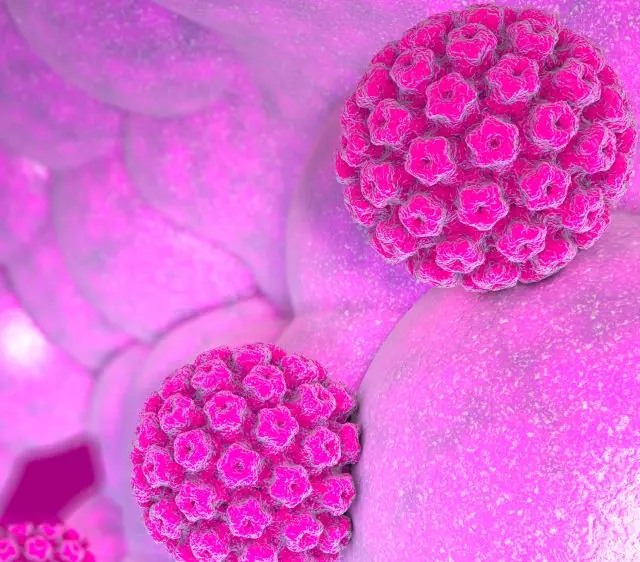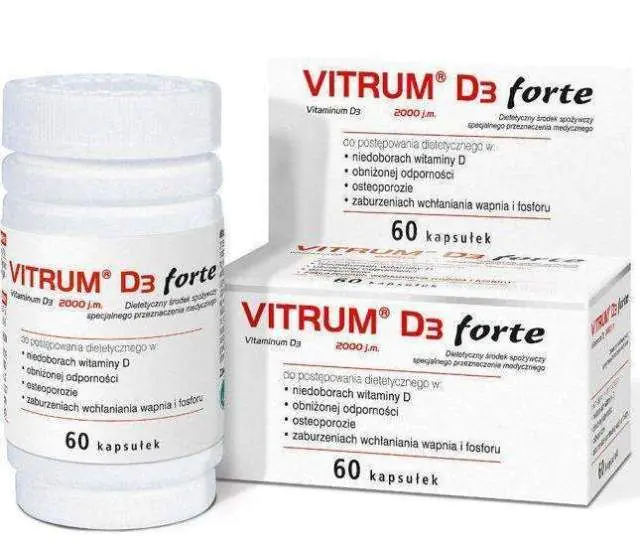
- Is the papilloma virus sexually transmitted?
- Risk factors
- How is HPV transmitted?
- Prevention of papilloma virus
The human papillomavirus is an infectious agent that infects healthy cells and causes the appearance of specific tumors. Infection occurs through contact, household and sexual contact. In the latter case, HPV enters through the vagina, phallus, mouth or intestines, depending on the type of sexual contact. This article will help you understand whether the human papillomavirus is sexually transmitted, why and how this happens, as well as what ways to prevent it.
Is human papillomavirus transmitted sexually?

For those who do not know whether papilloma is sexually transmitted, you need to remember that HPV can easily enter the body through sexual contact, but for this to happen, the partner must be infected with it. The likelihood of this increases if the virus is very active. The longer it is inside, the more a person is exposed to the possibility of becoming its carrier.
It should be noted that papilloma is transmitted sexually both during ordinary vaginal intercourse and during oral and anal contact. The risk of this especially increases in the latter case, due to the high probability of violating the integrity of the walls of the rectum. Through these lesions, the virus easily enters the blood and infects healthy cells.
Those who have a regular partner who already has HPV in their body are more susceptible to sexual transmission of the papilloma virus. With one-time sexual intercourse, the risk of this is much lower. It increases if people choose for coitus an untested person with whom they are still unfamiliar, that is, with so-called casual relationships.
Important! “Genital” strains of the papilloma virus are most often transmitted sexually; we are mainly talking about types 16 and 18.- Read also: Is it possible to have sex with papillomas?
Risk factors for sexual transmission of HPV

HPV can be contracted if contraception is not used during coitus or if low-quality condoms are used. In the latter case, it is likely that their integrity will be compromised; such a marriage occurs quite often. It also happens that they simply tear when the phallus performs active frictions.
Here's what contributes to the sexual transmission of human papillomavirus:
- First sexual experience. First of all, this applies to girls who lose their virginity. The danger here is that when the hymen ruptures, optimal conditions are created for the virus to enter the body and spread further.
- Using vaginal rings and coils. They pose a health risk because they can damage the vaginal walls. As a result of the appearance of wounds here when the penis is inserted inside, especially if a condom is not used, HPV can spread to the mucous membrane and penetrate deeper into the body. To avoid sexual transmission of the human papillomavirus, it is recommended that such coils and rings be inserted and removed only by a gynecologist.
- Large phallus size. By European standards, this is considered to be a penis length of 18 cm or more. This parameter is especially dangerous for women with a shallow uterus. Because of this, when inserted into the vagina, it can damage the mucous membrane. It is through such wounds that the virus quite often enters the body.
- Application of various lubricants. This is only true if you combine them with condoms. Thus, there is a risk of violating the integrity of the latter, and through these microcracks the human papillomavirus is transmitted sexually. That is why you should not apply such gels, creams and other similar products to the penis and mucous membranes of a woman if you plan to wear a condom.
The likelihood of becoming infected with HPV increases among those who have sexual contact with people who have tumors on their genitals. The more there are, the higher the risk becomes. This is due to damage to the growth cells by a virus, traces of which are present there. When these tumors come into contact with the healthy tissues of the partner, it often spreads to them.
Indirect factors that increase a person’s vulnerability to the papilloma virus are bad habits. This applies to those who smoke a lot and abuse alcohol, and also take drugs, especially if they are heavy.
People with strong immune systems are more protected from sexual transmission of the human papillomavirus. When it worsens, the body simply cannot successfully resist its vigorous activity, which is why it does not meet obstacles and spreads freely further.
It is especially worth noting a certain dependence of the disease “papillomatosis” on non-compliance with personal hygiene rules. So, if a woman and a man, after sexual intercourse, do not take a shower and do not carry out the necessary procedures for caring for intimate places, then they are at risk of getting HPV inside. The fact is that it can remain on the vaginal mucous membranes for a long time, and if it is not eliminated in the first few hours after coitus ends, it can penetrate deeper.
In order for the human papillomavirus to be transmitted sexually, penetrative sexual intercourse is not at all necessary; foreplay is quite enough. This is especially true when lovemaking is carried out by influencing a woman’s external genitalia with her lips, tongue, teeth and fingers. The reason for this is the content of HPV in a man’s saliva, as well as its presence on the skin if he does not wash his hands before coitus.
It should also be said that women from men who have been circumcised become infected with the papilloma virus through sexual contact less often than others. This is due to the fact that HPV usually accumulates in large volumes just under the foreskin.
Important! Most often, the human papillomavirus is transmitted sexually from a man to a woman than vice versa, which is explained by the ease of injury to the vaginal mucosa and heavy discharge.How is HPV transmitted through sexual contact?

Sexual transmission of the papilloma virus is the most common after contact and household transmission. Infection usually does not occur with the first penetration of the phallus into the vagina; for this, contact must be close, active and prolonged. The more intense and varied the intercourse, the higher the likelihood of becoming a carrier of HPV.
The peculiarity of the pathogen is that it cannot remain outside the body for a long time. You can become infected with it only through direct contact with a patient - bodily, vaginal, oral, anal. After the human papillomavirus is transmitted sexually, it remains inactive for some time and does not infect cells. Throughout this period, the immune system is trying to fight it and neutralize it.
If this happens successfully, for which it must be strong, HPV may never manifest itself at all. Due to the low viral load, it happens that it cannot even be detected using special tests.
If the immune system cannot cope with repelling the attack of the virus, then it freely enters the body. First, a limited number of cells are affected, after which the process spreads further. HPV integrates into their structure, changes it and, ultimately, leads to the formation of unfortunate papillomas. First of all, we are talking about genital neoplasms that appear in intimate places.
- Read also: How warts are transmitted from person to person
Prevention of sexual transmission of papillomavirus

The most reliable way to prevent sexual transmission of the human papillomavirus is to carefully select sexual partners. If there is such a possibility, for example, when an already established relationship has developed with a man or woman, you can ask your partner to take the appropriate test to exclude the presence of HPV in the body.
To avoid transmission of the papilloma virus between people, you should avoid sexual contact in the sea, swimming pool, bathhouse and in other conditions where there is a humid environment. The fact is that the pathogen here can remain active for a long time, threatening a healthy person with damage literally every minute.
To minimize the likelihood of transmitting the human papillomavirus through sexual contact, it is necessary to exclude casual sexual contact, especially when drunk. It is also important, if they do occur, to use condoms. The higher quality these products are, the lower the likelihood that the product will break and thereby create suitable conditions for the pathogen to enter the body through these damages.
Women are not recommended to resort to oral sex if they have open wounds in the mouth. Through them, the virus can enter the blood and spread further with it, infecting a large number of cells and creating optimal conditions for the formation of growths.
If anal sexual intercourse is practiced, then in order to prevent the human papillomavirus from being transmitted sexually, it is necessary to use a good lubricant. Otherwise, the intestinal mucosa can be easily injured, and as a result of such a violation of integrity, opportunities will open for HPV to enter the body. This is especially true for those women who have chosen a partner with a large penis.
After completion of coitus, it is always recommended to carry out hygiene procedures using antibacterial soap. This will allow you to eliminate the virus in time if it is still on the mucous membranes in the area where this product is applied. Also, when touching a woman’s external genitalia with a man’s fingers, he should wash his hands well, especially after visiting the street. The same should be done at the end of foreplay.
If possible, the following drugs should be used to prevent sexual transmission of the papilloma virus:
- Vaccine. For this, two types of drugs are usually taken - Cervarix and Gardasil. They are mainly aimed at protecting against HPV types 16 and 18, which most often cause formations in intimate places. The cost of the first one is about 1500 rubles. (700 UAH) per dose. Gardasil costs about 6,000 rubles. (2900 UAH) and can be used as its analogue. Vaccination is performed 3 times over six months, the drugs are administered intramuscularly. It should be done every 5 years to reliably prevent HPV infection.
- Immunostimulants. To protect yourself from sexual transmission of the human papillomavirus, you need to regularly strengthen your immune system. To replenish it, you should take special medications, preferably of homeopathic origin. Thus, the Lymphomyosot solution, which sells for 500 rubles, is considered very good. (220 UAH). It is recommended to drink 30 drops once a day for a month. Also very effective is “Immunal”, available in tablet and liquid form.
- Vitamins. If necessary, you can replace Lymphomyosot and Immunal with Imudon. Its cost is 1200 rubles. (520 UAH). It is sold in tablets that should be taken every 4 hours with water. The maximum daily dose should not exceed 6 pcs. The duration of treatment is usually 10 days. Separately, it is worth noting the benefits of preventing the sexual transmission of human papillomavirus through vitamin and mineral complexes. Among them, the most effective are additives from the brands “Solgar”, “Vitrum”, “Alfavit”, “Perfectil”. On average, these drugs should be taken for 2-4 weeks. This course should be completed 2-3 times a year to maintain the body’s normal resistance to HPV.
- Read also about the prevention of human papillomavirus infection in adults and children
Every time you want to refuse to use a condom or perform a sexual act with an unfamiliar partner, you should not doubt whether the human papillomavirus is sexually transmitted. The probability of this is very high, and the more attentive you are to your own health, the more you can reduce it. Naturally, it is impossible to completely exclude infection, but at least you can try to protect yourself as much as possible from HPV.
- Related article: Is papilloma transmitted through a condom?



